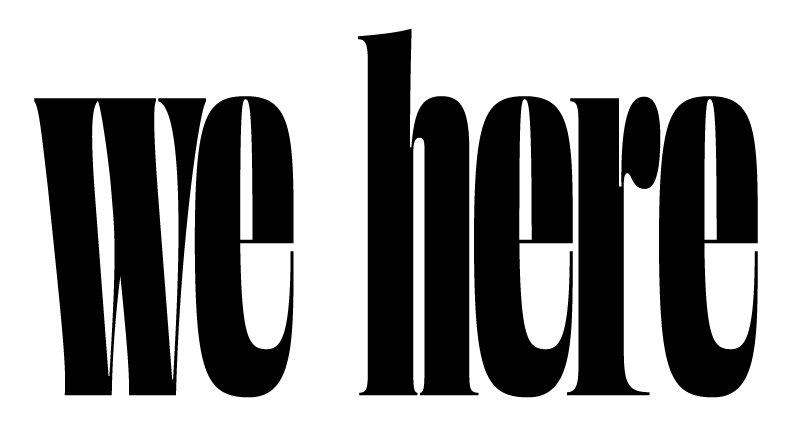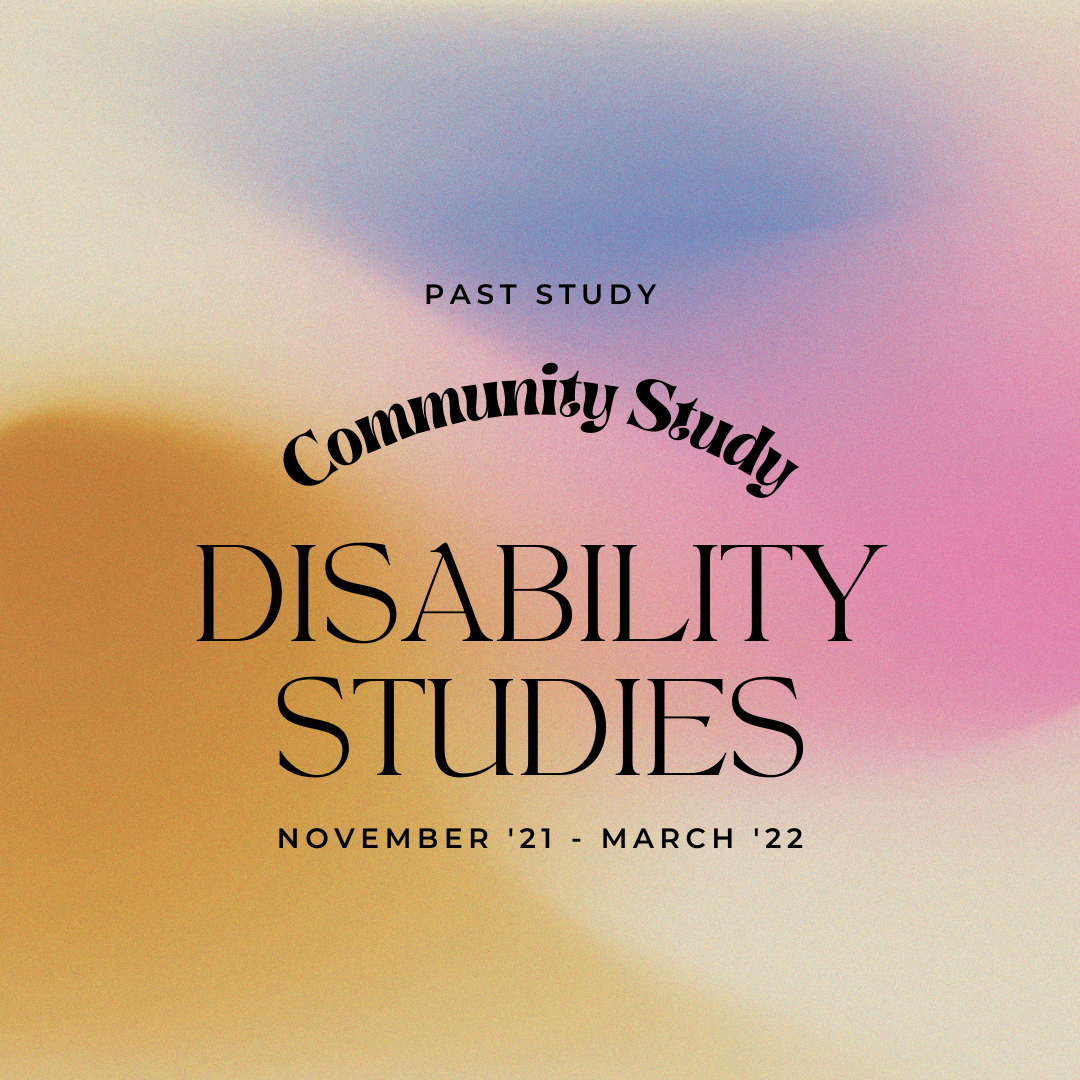Past Studies
As we move forward, we want to honor and share the spaces we’ve created in the past. Here, you will find brief descriptions of former studies, as well as the wrap-up and reflection documents we create in order to remember the time we shared together.
2023 Studies
Glitched Out: Intersections of Rae and Technology
Pshhhkkkkkkrrrrkakingkakingkakingtshchchchchchchchcch*ding*ding*ding
(dial-up modem noises)
Securing connection…program loading….now running…
Searching for new study protocol…… search complete.
Engaging study….
The internet is oppressive, algorithms are racist, automation deepens white supremacy.
In an effort to break the internet, decipher the code, or crash the system, this study interrogates the relationships between race and various technologies, and their intersections (and allegiances) with systems of oppression.
By no means a system-error—in fact the opposite—and in order to short circuit the system and offer redesigns and new algorithms, we’ll come together to engage Safiya Umoja Noble’s ground-breaking work, Algorithms of Oppression, then move to Meredith Broussard’s innovative, More than a Glitch, and close by tending to Ruha Benjamin’s foundational, Race After Technology.
Readings
Algorithms of Oppression: How Search Engines Reinforce Racism, Safiya Umoja Noble (2018)
More Than a Glitch: Confronting Race, Gender, and Ability Bias in Tech, Meredith Broussard (2023)
Race After Technology: Abolitionist Tools for the New Jim Code, Ruha Benjamin (2019)
Please purchase, borrow, or in some way find your way to these texts, as we will be reading them in full. We will provide electronic access to selections from any other titles.
Disclosure: As a Bookshop affiliate, Community Study earns a commission from purchases made through these affiliate links. This money funds scholarships in support of purchasing materials for study participants. To learn more, check out our About page.
Dark Academia Summer
A Community Study and We Reads Summer Reading Collective
School is almost out but with this first-ever We Reads + Community Study special collab, it’s setting up to be a real, hot Dark Academia Summer.
As such this reading experience finds us exploring the underside and unpleasant, the unlit and malevolent, the cruel and rude—the sides of academia, which are reality and nightmare, and also a continuous, historically present haunting. BOO.
Still, together, we babel and read, study and rebel. And with a mixture of forms and formats, we’ll make our way through R. F. Kuang’s novel Babel and then, Community as Rebellion by Lorgia García Peña. Bringing the gathering to its conclusion will be the viewing of the movie, Master.
With this reading collective offering a range of modalities, different writing styles and points of entry, folks are encouraged to join in when they can and participate with the materials that draw their interests.
Content notice: Although this experience is intended to be playful and light, the subject matter and themes are familiar, personal, and lived by many members of the We Here community, and we want to be incredibly mindful and sensitive to the traumatic experiences many of us have experienced, and are experiencing, in academia. The materials bring forward intense, hostile, violent and toxic aspects of higher education, and in particular the horror movie, Master, participants could find triggering and cause harm.
About This Study
You, Me, & We on TV:
Pop Culture Representations of Librarians
Cultural scholar Stuart Hall generously offers, “How has [our] relationship [with the audience] been staged and shaped in the last decade? What institutional relationships have been constructed and sustained? How do we see the future?” (“Black and White in Television”). Stuart Hall poses these questions asking about Black culture’s relationship with ‘multicultural audiences,’ and we appreciate these questions to look at our—BIPOC library people—relationship with non-library workers. In this study, we will watch depictions of librarians, not only looking for ourselves, but for relationships–personal, powerful, institutional, and more. We know and begrudge the stereotypes, and we hope to get into the nuance, grit, and perhaps sparks of truth in these representations.
Together we will dip in and out of various television shows, from sitcoms to animated to fantasy, engaging with various radical texts to guide us through understanding our (non) realities. Series include Bob’s Burgers, Archive 81, YOU, and The Magicians, while authors include Simone Brown, Stuart Hall, and Michelle Williams. All materials and media will be provided.
This media-rich study will began in March and ended in early June.
2022 Studies
About This Study
Indigenous Lifeways & Liberation
Michi Saagiig Nishnaabeg artist, scholar and writer Leanne Betasamosake Simpson tells us, “Indigenous nationhood is a radical and complete overturning of the nation-state’s political formations” (2021, 10).
In this study, we look to Indigenous lifeways on Turtle Island, and the many liberatory practices, knowledges, processes, and relationships that can expand and guide our imaginations and perspectives towards what is necessary and possible. As we engage with the texts of Indigenous writers, scholars, activists, and artists, we will explore what it means to exist in this specific place and time, and reflect on the importance of being in relationship with ourselves, our communities, the land and all life, living and otherwise.
Our path opens with a series of introductory readings that situates our thinking in Indigenous thought, expression, and understandings of (settler) colonialism. Following those materials, we encounter Shapes of Native Nonfiction, an edited collection grounded in the elements of traditional basket making. From there, we move to As We Have Always Done, Betasamosake Simpson’s spectacular text, and gift, which provides a history of Indigenous resistance movements and resurgence processes and practices that direct us to a complete overturning of nation-states. In closing our time together, we move with the words and ideas from Braiding Sweetgrass by Robin Wall Kimmerer, which offers teachings on reciprocity and the living world from animals, plants, and many ways of knowing.
This beautifully long, generous study will begin the week of July 18 and continue for 12 to 14 weeks.
Readings
Shapes of Native Nonfiction, Elissa Washuta & Theresa Warburton (eds.) (2019)*
As We Have Always Done: Indigenous Freedom through Radical Resistance, Leanne Betasamosake Simpson (2021)*
Braiding Sweetgrass: Indigenous Wisdom, Scientific Knowledge, and the Teachings of Plants, Robin Wall Kimmerer (2015)*
*Please purchase, borrow, or in some way find your way to these two texts, as we will be reading them in full. We will provide electronic access to our selections from the other titles.
Disclosure: As a Bookshop affiliate, Community Study earns a commission from purchases made through these affiliate links. This money funds scholarships in support of purchasing materials for study participants. To learn more, check out our About page.
About This Study
bell hooks: love & rage
With the passing of the beloved and revered bell hooks, we felt moved to immerse ourselves in the long arc of her work, which, foremost, pushed the boundaries of feminism beyond the narrow lens of whiteness towards radical Black feminist thought. Many folx, particularly instruction librarians, may be familiar with her groundbreaking and inspirational Teaching trilogy (Teaching to Transgress, Teaching Community, Teaching Critical Thinking), but her oeuvre covers over 30 books and other writings on feminism, gender, love, Blackness, race and racism, art, culture, and so much more.
We want to explore and honor ancestor bell’s wide-ranging thinking over time and have selected works from different periods of her life. We’ll begin our journey with some of her works on feminism: Ain’t I A Woman, Feminism is for Everybody, Feminist Theory: From Margin to Center. Then we’ll move to her memoir, Bone Black, on her childhood experiences, followed by her work on racism from a Black feminist perspective, Killing Rage. Our explorations will take us to All About Love, her treatise on expanding what love can be, and close with selections from her Teaching trilogy. Through her writing, she teaches—and will teach us—how to be more loving, more rageful, and more human. As bell once said in an interview with The New York Times, “I believe whole-heartedly that the only way out of domination is love.”
This is our first immersive study focused on the work of one writer/thinker. It will begin the week of March 21, 2022 and continue for 8-10 weeks.
Readings
Selections from Ain’t I A Woman (1981), Feminist Theory: From Margin to Center (1984), Feminism is for Everybody: Passionate Politics (2000)
Bone Black: Memories of Girlhood (1996)*
Selections from Killing Rage: Ending Racism (1995)
All About Love: New Visions (1999)*
Selections from Teaching: Teaching to Transgress: Education as the Practice of Freedom (1994), Teaching Community: A Pedagogy of Hope (2003), Teaching Critical Thinking: Practical Wisdom (2009)
2021 Studies
About this Study
Disability Studies
“Where does the future live in your body? Touch it”
Leah Lakshmi Piepzna-Samarasinha (in “Femme Futures”) asks, then lovingly instructs us. As we are always already in bodies (embodied), it is through our bodies that we tether to the present in order to envision and build a future together. With this embodied knowing, we move, together, to deeply and meaningfully explore areas of disability studies--the activist movements, the social, political, cultural, and environmental elements of disability, and the meaning(s) of disabled.
This study finds us holding and carrying the words and ideas of disability activists, writers, thinkers, and artists committed to celebrating and showcasing the experiences, gifts, and complexities of the disabled community. Guiding us towards that direction, we'll be guided by Piepzna-Samarasinha, in her integral volume Care Work, and by the voices in Alice Wong’s edited collection, Disability Visibility. We’ll also be traveling alongside beautiful thinkers via selected essays from the foundational text, Beginning with Disability, introductory materials from Decarcerating Disability: Deinstitutionalization and Prison Abolition, and selected essays, stories, and poems from the edited compendium QDA: A Queer Disability Anthology.
We hope to begin mid-to-late October and close in December, but will arrange a schedule when we all come together in community.
Readings
Disability Visibility: First-Person Stories from the Twenty-First Century, Alice Wong (ed.) (2020, 336pp)
Care Work: Dreaming Disability Justice, Leah Lakshmi Piepzna-Samarasinha (2018, 304pp)
Selections from Beginning with Disability: A Primer (2017)
Selections from Decarcerating Disability: Deinstitutionalization and Prison Abolition, Liat Ben-Moshe (2020)
Selections from QDA: A Queer Disability Anthology, Raymond Luczak (ed.) (2015)
About this Study
Contemporary Abolitionist Feminisms
Ruth Wilson Gilmore wrote that “abolition requires that we change one thing, which is everything. Abolition is not absence, it is presence. What the world will become already exists in fragments and pieces, experiments and possibilities. Abolition is building the future from the present, in all of the ways we can.” But if abolition is the horizon, how do we reach towards it? How can we begin to imagine, and build, “the future from the present?”
In this study, we’ll be engaging with recent writings from Black feminists who have explored the possibilities and potencies of the abolitionist imaginary. Beginning with Angela Davis’ integral work Are Prisons Obsolete, and moving through Ruth Wilson Gilmore’s most recent text Change Everything: Racial Capitalism and the Case for Abolition, we’ll consider how we can move towards an abolitionist horizon.
We will start in May, and meet through mid-July. We’ll settle on a final timeline once our group comes together.
Readings
Are Prisons Obsolete?, Angela Davis (2003, 128pp), 2 weeks
We Do This 'til We Free Us: Abolitionist Organizing and Transformative Justice, Mariame Kaba (2021, 200pp), 4 weeks
Beyond Survival: Strategies and Stories from the Transformative Justice Movement, Leah Lakshmi Piepzna-Samarasinha & Ejeris Dixon (eds.) (2020, 260pp), 4 weeks
Want to learn more about our work?
…everything that we know that feels like knowing is because someone who loved us taught it to us.
— Linda Tuhiwai Smith, Eve Tuck, and K. Wayne Yang







